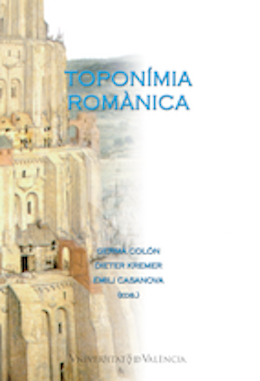Semantic fluency and regional variation in the hydronyms of the Valencian counties of 'xurra' speech
DOI:
https://doi.org/10.7203/qfilologia.20.7519 Abstract
Abstract
The purpose of the current article is to exemplify through the study of natural and artificial hydronyms, whether they are generic place-name or preplace-name, two of the characteristic facts of the hydronimic lexicon: the semantic fluency – one signified is built through more than one signifier, and one signifier is built through more than one signified. These two characteristic facts were already mentioned by the north-american investigator Thomas Glick, in reference to the studies of valencian irrigation system lexicon.
These characteristic facts are referred within of the context of the “xurra” speech in valencian regions that have a castilian-aragonese linguistic basis. The fact of the linguistic variations is studied within these regions, with different lexical and formal results due to the language contact and the hispanic-arabian strate. As an exemple of this, it is shown four outcomes – hocino/hochino/hogina/fuchino – related with the latin etymon F?CE+ INU, ‘gorge, canyon’.
Keywords: “xurra” speech; hydronym; linguistic variation; semantic fluency; strate.
 Downloads
Downloads
Downloads
Published
How to Cite
-
Abstract666
-
PDF (Español)565
Issue
Section
License
 Este obra está bajo una licencia de Creative Commons Reconocimiento-NoComercial-SinObraDerivada 4.0 Internacional.
Este obra está bajo una licencia de Creative Commons Reconocimiento-NoComercial-SinObraDerivada 4.0 Internacional.
Authors who publish with this journal agree to the following terms:
- Authors retain copyright and grant the journal right of first publication with the work simultaneously licensed under a Creative Commons Attribution License that allows others to share the work with an acknowledgement of the work's authorship and initial publication in this journal.
- Authors are able to enter into separate, additional contractual arrangements for the non-exclusive distribution of the journal's published version of the work (e.g., post it to an institutional repository or publish it in a book), with an acknowledgement of its initial publication in this journal.
- Authors are permitted and encouraged to post their work online (e.g., in institutional repositories or on their website) prior to and during the submission process, as it can lead to productive exchanges, as well as earlier and greater citation of published work (See The Effect of Open Access).




